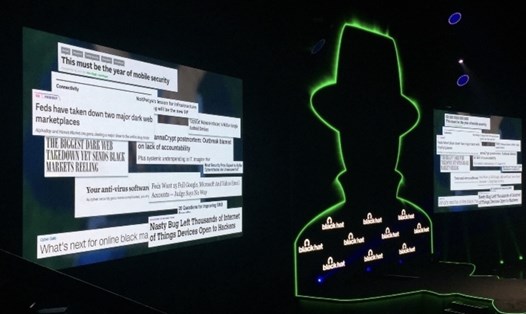A small camera, great risk
wanting to use a camera integrated into a laptop is a device that was originally designed to serve learning, working and communication, but is increasingly becoming a target of attack by hackers.
According to a new study published by Kaspersky (a global cybersecurity corporation based in Russia), in 2024, more than 2.5 million devices globally were equipped with spyware with the ability to illegally access websites that users were not aware of.
In fact, many people are still subjective, believing that if the camera lights are not on, no one is watching them. However, according to cybersecurity experts, this is no longer true.
Once the operating system is exploited, hackers can completely control the camera without turning on the bulletin light, warned Jake Moore, a global security consultant at ESET (UK).
Hiding people and popular tricks
remote control software (Remote Access Trojans RATs) is a popular tool that hackers use to gain access to webcams. RATs are often disguised as harmless files such as software updates, PDF documents, or distributed via fake emails and unsafe websites.
Some attack campaigns also exploit social media and file sharing platforms. Users, just by clicking on a "terroristic" link, can accidentally allow hackers to install spyware on their computers.
The worrying thing is that camera control often comes with the ability to record, take screenshots and track the keyboard (keylogging). This is the origin of blackmail cases using sensitive images or stealing bank account information.
How to protect privacy
Mr. Jake Moore emphasized that users should not wait until there are signs to start prevention: Whoahoa protection should be considered part of personal digital safety policy. It is best to act before being attacked.
Some recommended measures include:
- turn off or cover the camera when not in use.
- Update the operating system and software regularly to patch security vulnerabilities.
- Do not download software from unclear sources.
- Use reputable virus terminal software that can detect RAT.
- Check for website-only applications in your system settings.
From a small detail on a personal device, the risks of private security breaches can expand unlimitedly. Being aware correctly and proactively protecting yourself from website tracking is something that cannot be delayed in the digital age.











